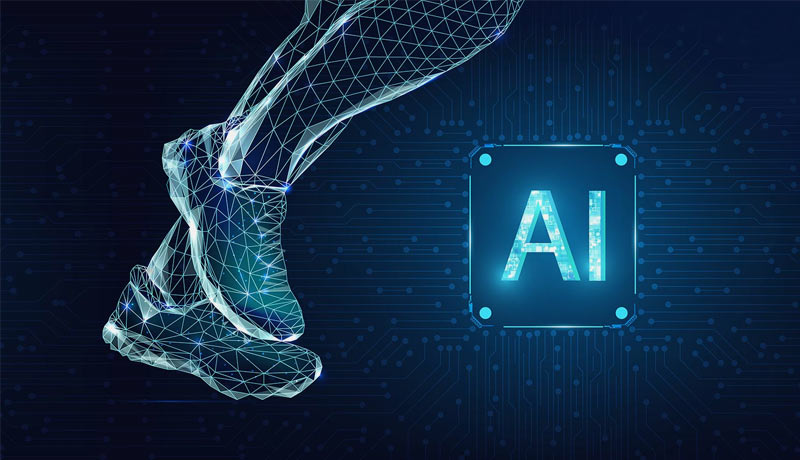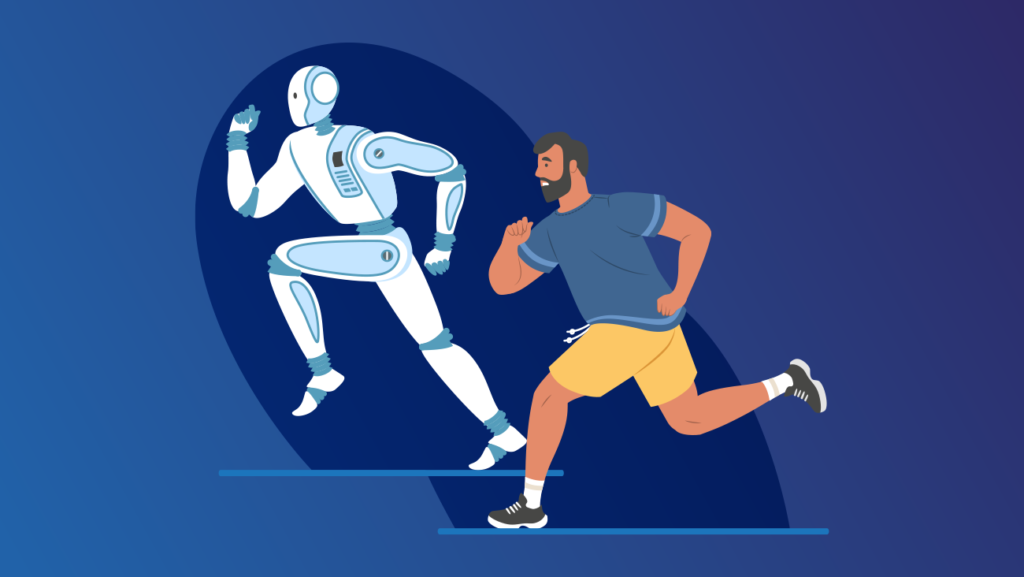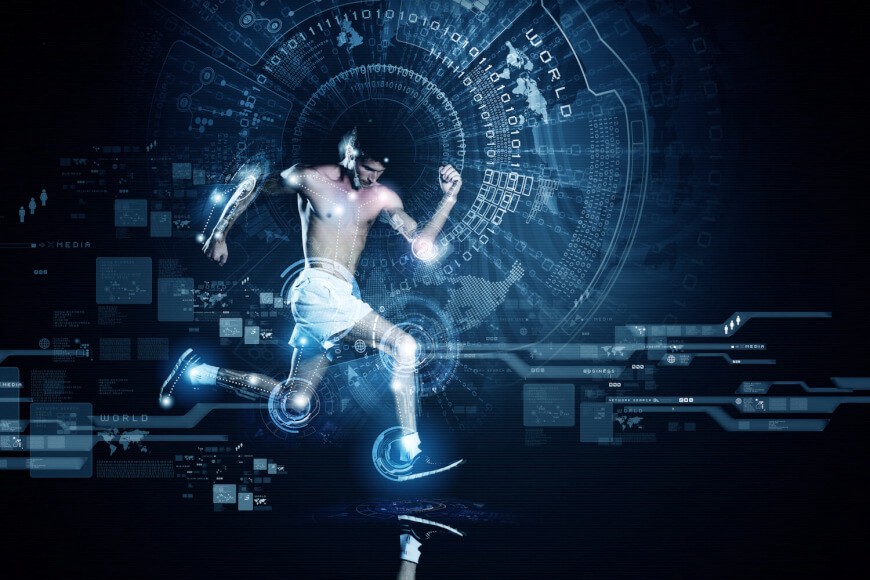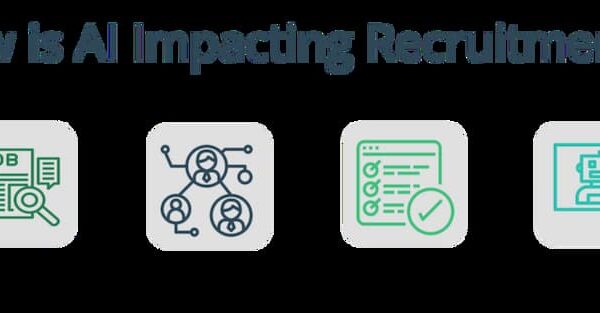In recent years, the application of artificial intelligence in sports has become a common phenomenon. From post-game analysis to in-game action to fan experience, AI in motion makes its presence felt in every corner of the world. In this article, we discuss the application areas of artificial intelligence in sports and how it is used in different sports.
There is no doubt that the use of artificial intelligence in sports will make the prediction of match results more certain and reliable. No matter how much we try to introduce predictability and certainty into sports, there will always be an element of unpredictability and surprise in sports due to the human element. After all, it’s what gets audiences around the world excited and fascinated by sports. As long as sports remain a fascination for the masses, there will always be a chance for businesses to profit from them. The investment and integration of sports technology will continue as long as profits are made from the sports world.
Table of Contents
The Use of Artificial Intelligence in Sports

Anything that can be quantified can be accurately predicted using data analytics and artificial intelligence. The world of sports is rich in quantifiable elements, which makes it an ideal place to use artificial intelligence. In recent years, the application of artificial intelligence in sports has become a common phenomenon. Given the positive impact they bring through their growing capabilities, they will continue to foray into sports. Here are a few sports areas where AI will be a major component:
Scouting and Recruitment
While humans are far from being assessed using objective quantitative metrics, their performance is certainly subject to quantitative scrutiny. Sports teams, whether it’s baseball, football, or any other game, are increasingly using a player’s individual performance data to measure fit and potential. However, the performance data used to scout for potential recruits don’t mean using only publicly available statistics like home runs, goals, or passes, but more complex metrics that take into account multiple factors. However, human perceptual limitations may prevent them from accurately recording and evaluating these metrics. As big data and artificial intelligence enter the field of sports management, the process of recording and measuring these future success indicators has become easier and more reliable.
AI can use historical data (which has a good track record in sports) to predict the future potential of players before investing in them. It can also be used to estimate a player’s market value in order to make the right offer while acquiring new talent.
Training and Performance Analysis
As mentioned above, using general metrics such as runs scored, passes scored, goals scored, etc. is not the best way to accurately assess individual and collective performance. To measure performance in any sport, analysts and coaches need to analyze a large number of data points related to the individual athlete and collective performance. This helps them identify areas where players excel and where they lag. Depending on the role of an individual participant in the team, the metrics for assessing their contribution vary. In football, for example, the key performance indicators of a striker or attacking player are different from those of a midfielder (creative player) and a defender (defensive player). While not all aspects of performance can be quantified (as of now), more and more parts of a player’s game are becoming quantifiable and therefore measurable. This can be done by using artificial intelligence to derive correlations between qualitative features and quantitative variables and then measuring those variables to predict the corresponding qualitative value of the player.
AI can also be used to identify opponent tactical patterns, strengths and weaknesses when preparing for a match. This helps the coach develop a detailed game plan based on an assessment of the opponent and maximizes the probability of winning.
Maintaining Health, Fitness, and Safety
As we all know, the introduction of artificial intelligence is changing the medical industry in different ways. The extraordinary predictive and diagnostic capabilities of AI can also be applied to sports, where physical fitness and fitness are paramount. Since the essence of sport is to maintain optimal physical condition, sports teams invest heavily in the physical and mental health of their athletes. To ensure player health, they are increasingly incorporating technological tools into player healthcare. AI has become the latest tool in these teams’ medical kits. Players undergo regular physical tests, using artificial intelligence to analyze various fitness parameters and player movements to assess their fitness and even detect early signs of fatigue or stress injuries. This can help sports organizations’ medical teams keep players healthy and keep them safe from harm by taking timely action.
Many top teams use wearable technology to track players’ movements and physical parameters during training sessions to help them track players’ overall fitness. Artificial intelligence systems can be used to continuously analyze the data streams collected by these wearables to identify signs of musculoskeletal or cardiovascular problems in players. This will allow sports teams to keep their most valuable asset in tip-top shape during a long competitive season.
Broadcasting and Streaming
In addition to revolutionizing sports for athletes and sports managers, AI could revolutionize live broadcasting and impact the way viewers experience sports. AI will also change the way broadcasters monetize sporting events. Based on live events, AI systems can be used to automatically select the correct camera angles to display on audience screens. It can automatically provide subtitles for live events in different languages based on the audience’s location and language preference. AI systems can also be used to identify the right opportunity to display an ad based on the excitement level of the crowd on the sports field, enabling broadcasters to effectively capitalize on monetization opportunities through ad sales.
AI Predicts Sports Results

Artificial intelligence in sports can help predict games in a variety of ways. One is through crowdsourcing information, sometimes used implicitly. Customers can use prediction markets, such as betting exchanges, to place bets on the outcome of various events. This is a crowdsourcing approach, and if the market has enough participants to represent the collective knowledge of the entire market, with a wide variety of information and distributed decision-making freedom, then it is the most reliable forecasting tool. It’s unexplainable because we don’t know why people make betting decisions. If enough people participate in these markets, every conceivable forecast can be obtained. If that’s the case, it’s impossible to beat the market’s accuracy.
Another approach is to take an explicit data-driven approach that relies solely on historical matching and machine learning methods to predict match outcomes. This technology requires accurate and in-depth data to work, and it may only record the performance represented by the collected data points. The advantage of adopting a data-driven strategy is that it can be dynamic and interpretable. It also only needs a data feed of events, making it scalable. However, since not all data is included in the datasets used (e.g. injury data), the analysis may have holes that affect predictions.
Key Takeaways
AI is growing rapidly in sports, with new developments and applications emerging every year. Apart from the game itself, everything will be improved through data and technology.
Of course, it’s all about balance.
Implementing AI in sports sounds great in theory, but it can’t come at the expense of the fan experience. For example, while using facial recognition to allow fans into stadiums without them even needing tickets could prevent bottlenecks and get fans into stadiums faster, it also eliminates turnstiles, which for many European fans is at least a game Synonymous with Japanese romantic vision.
However, the future of sports technology undoubtedly depends on artificial intelligence. But we certainly haven’t reached the final frontier — in fact, we may just be getting started. It’s exciting.




